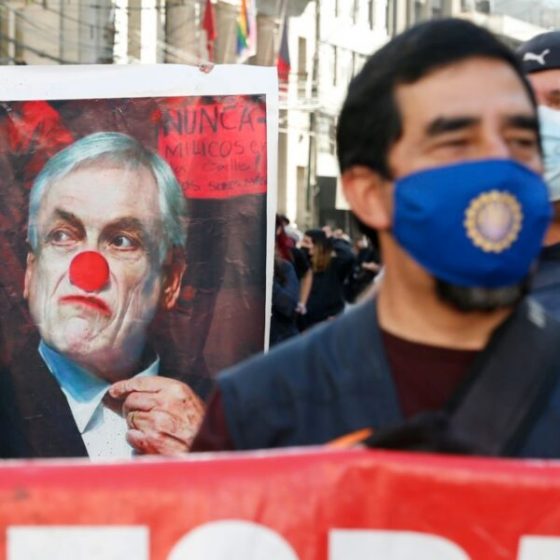
The 2019 demonstrations have actually sparked change in Chile, which individuals are identified to bring to fruition, Ramona Wadi writes.
Chilean President Sebastian Piñera would not have imagined, upon his electoral victory in 2017, that he would have mangled his political career beyond redemption. The 2017 Chilean governmental elections were characterised by a low turnout of voters, which largely suggested the left-wing electorate’s disillusionment in terms of prospects, proposals and, most significantly, the fundamental corruption throughout the Chilean political spectrum since the nation’s transition to democracy.
Prior to the 2019 demonstrations throughout Chile, it was hard to think of any form of shift out of dictator Augusto Pinochet’s legacy. As the clamour for Piñera’s ousting and the cumulative cry for a new constitution resonated throughout the country, the federal government took a leaf out of the dictatorship’s book, enforcing a military curfew and unleashing widespread, state-sanctioned violence which many Chileans said was reminiscent of the Pinochet era. Detention, abuse, killings and disappearances happened all over again, in an apparently democratic period in Chile.
While Piñera ultimately yielded to the need for a brand-new constitution and attempted to frame the decision as that of a government listening to its people’s demands, social motions in Chile were not acquiescing anymore to the imposed narrative. The right-wing suffered yet another blow in the vote to pick the people tasked with writing the new constitution, with voters choosing a bulk of independent and left-wing candidates.
For Piñera, however, the 2019 demonstrations sealed his legacy. Working together with the previous Spanish Judge Baltasar Garzon who, in 1998, provided a worldwide arrest warrant for Pinochet for crimes against mankind while the dictator was in London, Chilean human rights organisations fileda report with the International Wrongdoer Court, asking for an investigation into the crimes against mankind devoted by the Chilean government throughout the 2019 demonstrations. The report called for Piñera’s prosecution, along with other authorities accountable for the atrocities.
Developing criminal guilt and responsibility in the Chilean courts is filled with the dominating political impunity. To date, lots of dictatorship era criminal offenses have actually gone unpunished, and it depends on human rights organisations to constantly support the struggle for justice. Among the primary arguments brought forward by Garzon and the human rights organisations, in reality, is that 3,050 cases out of 6,568 have actually been archivedby the prosecution -a clear indication of judicial impunity.
The more current infractions are no exception. While Chileans were being beaten and shot in the eyes by the military during the protests, and human rights organisations, consisting of worldwide bodies, were recording the cases, Piñera was praising the armed force’s conduct, showing a total dissociation when it concerns the circumstance on the ground for Chileans.
Accordingto the Justice Researches Centre of the Americas (JSCA), “there is a widespread breach of informality, opportunity and thoroughness in the examinations of serious human rights infractions.” The JSCA also noted that Chile’s district attorney does not have “a specialised system concentrated on investigating human rights infractions, unlike other Latin American countries.”
The infractions inflicted upon Chileans by the military throughout the 2019 protests have actually been categorized as typical criminal offenses in Chile– an intentional move, the human rights organisations firmly insisted, in order to delay justice and allow the federal government to supply amnesty for the people involved.
While the ICC’s choice concerning whether the filed problem falls within its jurisdiction may take years, the action to access global justice points both towards the Chilean courts’ failure as a result of political predisposition, along with the Chilean individuals’s steadfastness when it pertains to accountability. For decades, Pinochet’s shadow loomed over, influencing the shift to democracy as democratically-elected federal governments refused to make a clean break with the dictatorship. The 2019 demonstrations have fired up change in Chile, which individuals are figured out to bring to fulfillment.
The views of private contributors do not necessarily represent those of the Strategic Culture Foundation.

